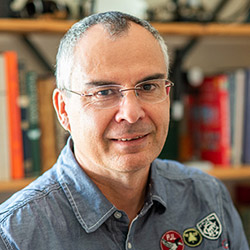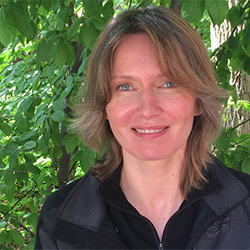Keynotes
Dr. Hervé Cochard
INRA, PIAF, Université Clermont-Auvergne, Clermont-Ferrand, France
Hervé Cochard is an ecophysiologist and specialist in the circulation of xylem sap and the hydraulic functioning of trees. He has contributed to the development of new tools for measuring hydraulic characteristics and to the demonstration of the key role played by xylem hydraulic failure in plant mortality under extreme drought conditions. He is developing mechanistic models to predict tree water relations during extreme drought events. He is INRAE Research Director at the UMR PIAF in Clermont-Ferrand.
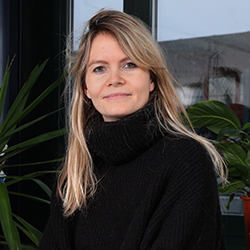
Prof. Dr. Charlotte Grossiord
Plant Ecology Research Laboratory (PERL), School of Architecture, Civil and Environmental Engineering (EPFL) and Functional Plant Ecology, Community Ecology Unit, Swiss Federal Institute for Forest, Snow and Landscape (WSL), Lausanne, Switzerland
How does global warming affect plants – and thus the important functions and services provided for humans by ecosystems? Charlotte Grossiord, an ecophysiologist at EPFL/WSL, has been investigating this question throughout her entire scientific career. Her research spans from biodiversity impacts on ecosystem functioning to understanding climate impacts on survival and mortality of trees. Charlotte’s research has made great steps forward in our understanding of plant responses to extreme conditions and on the significance of species interactions in forests. In her doctorate at Lorraine University and INRA-Nancy in France, she explored how tree species diversity affects the water balance of trees. She focused in particular on the resistance of plants to extreme events. In her PostDoc at the Los Alamos National Laboratory in the USA, Charlotte Grossiord investigated how forests adapt to the exacerbation of droughts with higher temperature. To continue and expand her research on these topics, EPFL and WSL have jointly appointed her tenure-track assistant professor in March 2020.
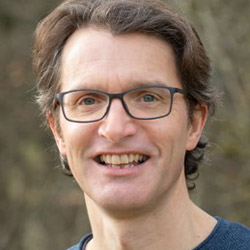
Prof. Dr. Steven Jansen
Institute of Systematic Botany and Ecology, Ulm University, Ulm, Germany
Research activities of my lab at Ulm University focus on fluid transport in plants, with a special emphasis on functional anatomy of vascular tissues. We aim to address the longstanding question of how plants are able to transport liquids and gasses without seemingly much effort and a high energy demand. Current work includes: (1) the three-dimensional structure of bordered pits between water conducting cells and their function in fluid transport and embolism spread, (2) the functional role of insoluble, polar lipids and their link with nanobubbles in xylem sap, and (3) the dimensions and three-dimensional network of xylem conduits in roots, stems, and leaves. The anatomical methods applied include a wide range of imaging methods, including electron microscopy, X-ray tomography, and ptychography. Moreover, we apply ecophysiological measurements in the field and in the lab, as well as chemical analyses. Experimental work is conducted on forest trees, talking trees, and synthetic trees. While talking trees are equipped with various sensors to monitor traits related to growth and productivity (http://svadss.org/svadss/uni-ulm/talking-tree/berti/), synthetic trees represent evaporation-driven transport devices, aiming to provide optimal cooling and/or liquid transport under negative pressure without the aid of any fuel consuming pumps.

Dr. Andrew J. McElrone
Department of Viticulture and Enology, University of California and USDA-ARS, Crops Pathology and Genetics Research Unit, Davis, California, USA
Dr. Andrew McElrone is a Research Plant Physiologist with USDA-ARS, an adjunct faculty member in Viticulture and Enology at UC Davis, and served as the Acting Director of the USDA California Climate Hub. For over two decades, he has studied plant responses to changing environmental conditions in agricultural and natural ecosystems, and has become an internationally recognized expert in plant water use and responses to drought with specific applications to irrigation management and sensor technology development. His research program is screening woody perennial crops for improved drought tolerance, developing efficient genotype-specific irrigation strategies, and advancing new technology to better quantify crop water use and stress with proximal and remote sensors. Along with collaborators, he pioneered the use of x-ray microCT for studying plant water uptake and transport processes at Lawrence Berkeley National Lab’s Advanced Light Source. As a collaborator and lead on the GRAPEX and T-REX projects (Grape Remote sensing and Atmospheric Profiling and Evapotranspiration eXperiment; Tree crop Remote sensing of Evapotranspiration eXperiment), he is helping to ground truth crop ET and stress estimates via soil moisture sensing, leaf and whole plant physiological measurements, and ecosystem fluxes. Prior to his current position, Dr. McElrone studied water use in deep tree roots using caves (~20 meters below ground) and examined plant- and pathogenic-response to changing atmospheric conditions—both as a post-doctoral researcher at Duke University and an assistant professor of biology and environmental science at Saint Joseph’s University in Philadelphia.
Prof. Dr. Jarmila Pittermann
Department of Ecology and Evolutionary Biology, University of California, Santa Cruz, California, USA
Jarmila Pittermann is a professor of plant biology at the University of California, Santa Cruz where she works on plant structure and function, particularly plant water transport in the context of ecology and evolution. She received her MSc at the University of Toronto and a PhD at the University of Utah where she examined the safety-efficiency trade-offs of conifer wood with respect to hydraulic efficiency and safety from hydraulic failure. Her current research focuses on the evolutionary ecophysiology of ferns and the drought performance of conifers in California's Sierra Nevada range.
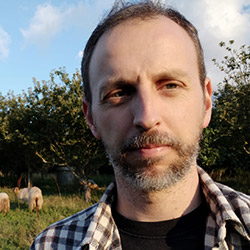
Dr. José Alberto Ramírez-Valiente
Department of Forest Ecology and Genetics, Forest Research Centre (INIA, CSIC), Madrid, and Ecological and Forestry Applications Research Centre (CREAF), Barcelona, Spain.
Jose Alberto Ramirez-Valiente is a researcher at the Centre for Research on Ecology and Forestry Applications (CREAF) in Barcelona. He defended his PhD on advanced forestry research at the Technical University of Madrid in 2010 with awards from the European Forest Institute and the Spanish Society of Forest Science. He then held different postdoctoral positions at the Australian National University, University of Minnesota, Doñana Biological Station and Spanish National Institute for Agriculture and Food Research and Technology.
Throughout his career, he has devoted his research to the study of phenotypic plasticity and intraspecific variation in functional traits and their role to cope with environmental heterogeneity and climate change in forest tree species. His research combines ecophysiology and quantitative genetics to understand how forest tree species adapt to the environment, their ability to respond to climatic changes and the influence of different evolutionary processes in shaping the levels of functional diversity observed in nature. More recently, he is focusing his research on the study of coordination of plant functions along resource-use availability gradients and the evolution of plant hydraulics at different organizational levels.
